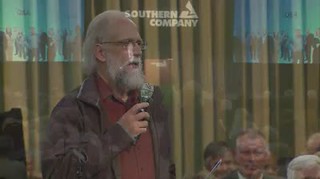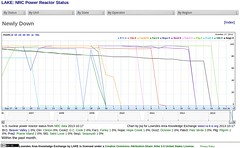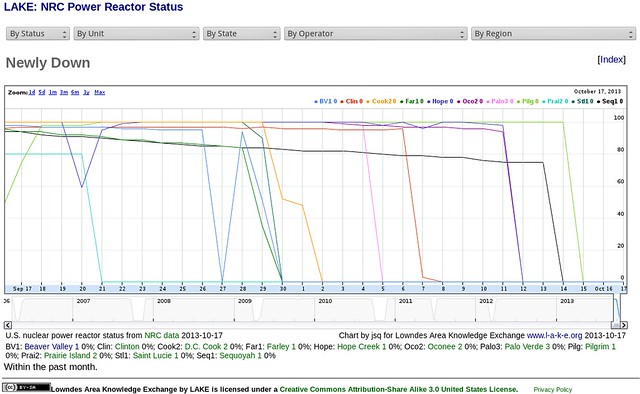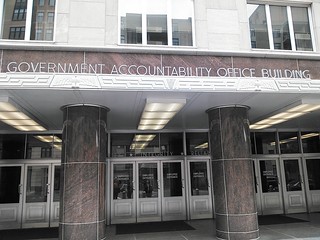 SO CEO Tom Fanning continued to blame slow sales and earnings on mild
weather (air conditioners running less), but the big boondoggle
going bad is Kemper Coal, which has slipped six months from May 2014 to Q4 2014,
and even the Wall Street Journal calls it “possibly the most expensive fossil-fuel power plant ever built in the U.S”.
How bad will SO’s stock tank when SO’s even more expensive
nuclear Plant Vogtle slips even more?
Dividends can’t prop up SO’s share price forever, not when PSCs are revolting against the rate hikes
and guaranteed profit hikes that prop up those dividends.
When will Southern Company and Georgia Power get out front and lead in solar and wind power?
Before or after the public, state public service commissions, and investors make them do it?
SO CEO Tom Fanning continued to blame slow sales and earnings on mild
weather (air conditioners running less), but the big boondoggle
going bad is Kemper Coal, which has slipped six months from May 2014 to Q4 2014,
and even the Wall Street Journal calls it “possibly the most expensive fossil-fuel power plant ever built in the U.S”.
How bad will SO’s stock tank when SO’s even more expensive
nuclear Plant Vogtle slips even more?
Dividends can’t prop up SO’s share price forever, not when PSCs are revolting against the rate hikes
and guaranteed profit hikes that prop up those dividends.
When will Southern Company and Georgia Power get out front and lead in solar and wind power?
Before or after the public, state public service commissions, and investors make them do it?
Justin Loiseau wrote for DailyFinance 4 November 2013, Southern Company Earnings: A $5 Billion Blunder? Continue reading













